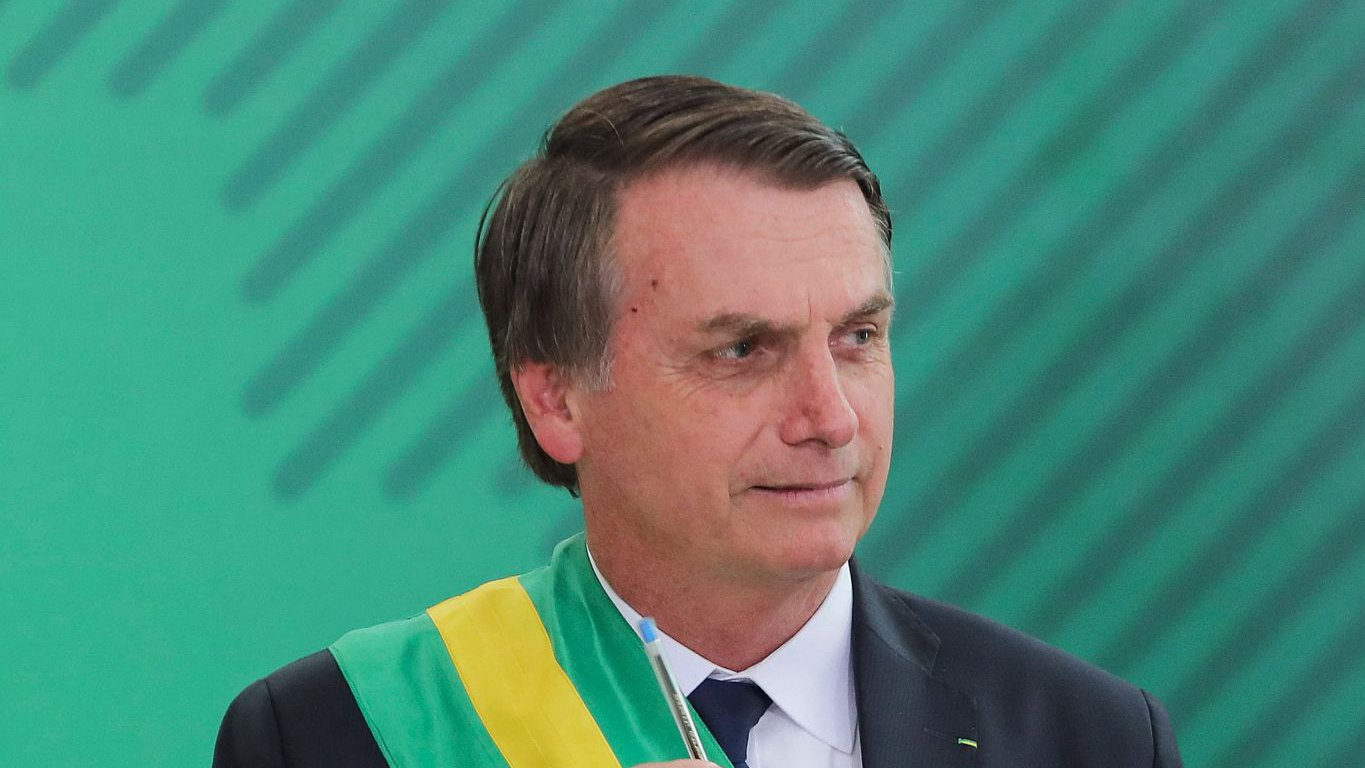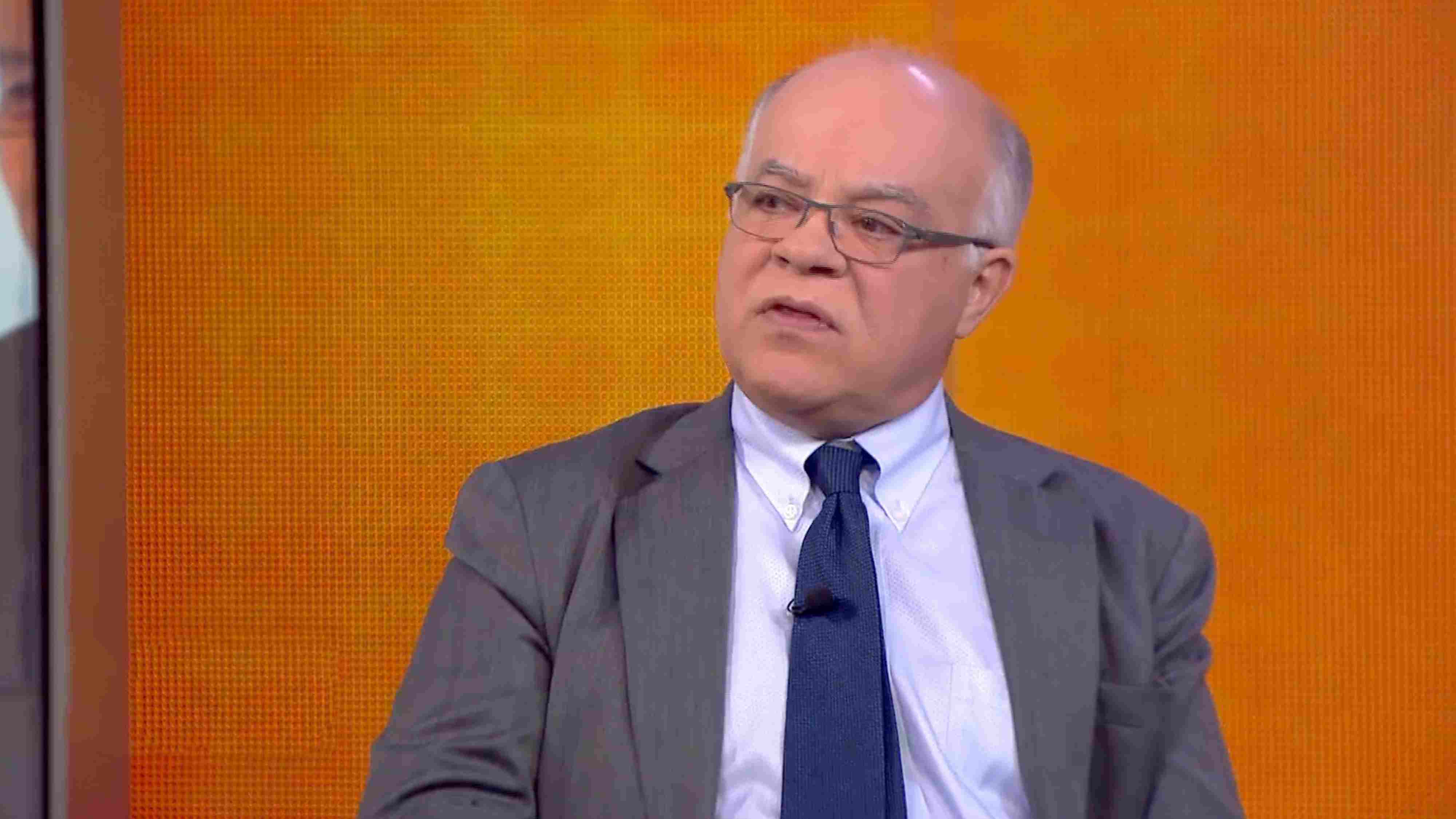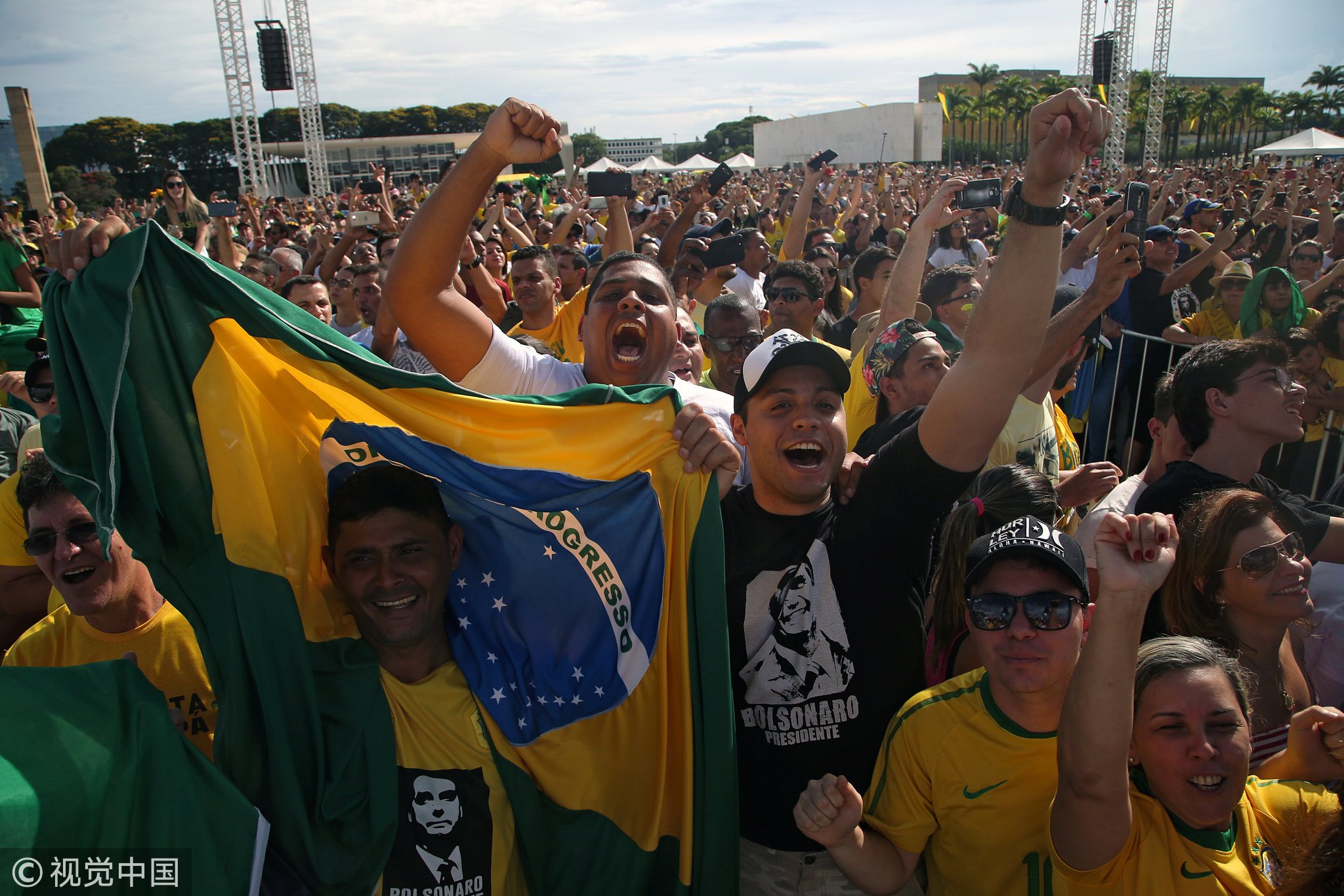
Analysis
12:27, 04-Jan-2019
The Heat: What challenges lie ahead for Jair Bolsonaro?
Updated
12:16, 07-Jan-2019
CGTN's The Heat

Jair Bolsonaro became Brazil's new president on January 1, 2019. The inauguration of the far-right leader marked the end of 15 years of left-wing government in the Latin American country.
Challenges lie ahead for Bolsonaro, Brazil's transformative leader. The dysfunctional economic status and the unstable political situation bring challenges to Bolsonaro's presidency. The Congress now consists of more than 30 parties. Could Bolsonaro unite the Congress and form a reliable ruling coalition among the parties? Will he be able to drag Brazil out of the swamp of recession with his anti-establishment reform?
The political trend in Brazil had been turbulent over the past years – from left-leaning to an extreme right nowadays with Bolsonaro. This reflects a frustration with the statist model, as Paulo Sotero, the director of the Brazil Institute at the Woodrow Wilson International Center for Scholars, points out, a model that failed to produce more benefits to its people. Bolsonaro mobilized his support from social media instead of traditional media. Paulo suggests that such a populist leader would have more political determination than his predecessors.
01:33

Regarding the images such as “racist” and “homophobic” that Bolsonaro had created in the election campaign, the economist, Rodrigo Constantino believes that these impressions are merely the distraction. When it comes to the economic reform, the head of the Ministry of the Economy, Paulo Guedes is a reliable and capable scholar who graduated from the University of Chicago.
Both Paulo and Rodrigo recognize the most immediate challenge for Bolsonaro's administration is the economic revitalization and the pension fund restructuring. Guedes has his recipe from the liberal economics point of view, but how Bolsonaro can execute the economic policies effectively will remain a doubt.
On the other hand, Heloisa Villela, the correspondent for Brazilian media Record TV, questions Paulo Guedes's policies that the liberal approach may deepen the social inequality. The minimum wage is just reduced, and she believes that the most miserable people will suffer the pain of the reform. The current dilemma in Brazil is that the inequality problem is as severe as the low economic growth, a radical liberal approach may not be sustainable for the country.

Supporters cheer for Brazil's new President Jair Bolsonaro in Brasilia, Brazil, January 1, 2019. /VCG Photo
Supporters cheer for Brazil's new President Jair Bolsonaro in Brasilia, Brazil, January 1, 2019. /VCG Photo
Some say that Jair Bolsonaro is another “Donald Trump” in South America. Fernando Cutz, the former director for South America on the White House National Security Council, analyzes the juxtaposition between the two leaders. He suggests that Bolsonaro and Trump could develop an intimate personal relationship as they have similar worldviews. Other than personal likings, the policies of the two leaders share many similarities, and Bolsonaro exhibits a lot of positive signs of policy from the U.S.'s perspective.
Paulo points to the ineffectiveness of the bureaucracy and suggests that a privatization reform can release the capacity of the Brazilian economy and attract the foreign direct investments. He suggests that the government should allow the economy to function with fewer rules so that more wealth can be created. This policy will incite the productivity in Brazil if the inequality problem that liberal economy brought with being contained and properly intervened. Moreover, the optimism that the Brazilian people expressed with Bolsonaro's election is a good sign of economic recovery.
Despite the debate on inequality and inefficiency dilemma, Heloisa claims that Bolsonaro faces a political challenge to bring his government together. How could Bolsonaro promote his radical liberal views to the nationalists from the military background?
On the recent speeches that Bolsonaro shows hostility against China when he refers that “China is not buying in Brazil, but buy Brazil,” Paulo believes that this would be a temporary sign for the campaign, and Brazil cannot bear the cost of alienate China. In the time of economic rejuvenation, Brazil will need China, especially for investment and consumption. According to a UN projection, Brazil will contribute to the food production growth in the next decades, and Brazil should consider wisely for the market and the buyers.
Finally, on the diplomatic policies, Heloisa believes that Bolsonaro will face a complex obstruction, not only from domestic needs but also from other countries that Brazil had got along with. The radical alignment with the U.S. may lead to specific backlashes. The relations with China and the Middle East could hurt.
The Heat with Anand Naidoo is a 30-minute political talk show on CGTN. It airs weekdays at 7:00 a.m. BJT and 7:00 p.m. Eastern in the United States.

SITEMAP
Copyright © 2018 CGTN. Beijing ICP prepared NO.16065310-3
Copyright © 2018 CGTN. Beijing ICP prepared NO.16065310-3